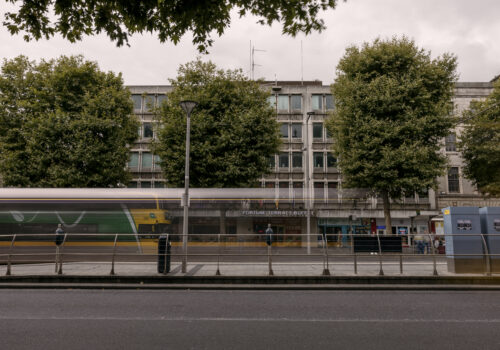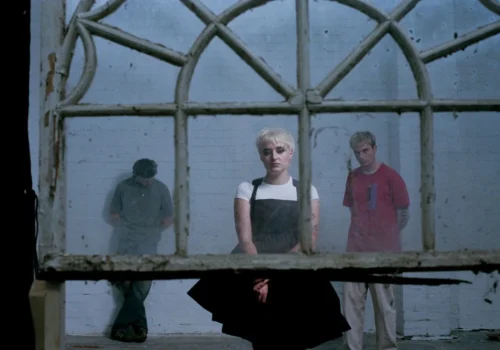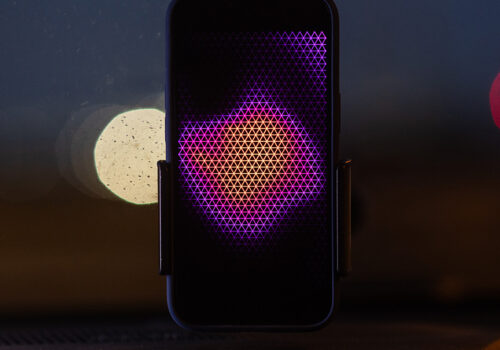Chef in Focus: Holly Dalton, Gertrude
3fE has been having fun. There are now a mini family of 3fE sprogs around the city. New girl on the block Gertrude joins vintage kid Daniel and their older siblings Grand Canal Street and Sussex Terrace (weird names, but it’s 2019). With Gertrude, things have shifted from café to a more fully-restaurant-like vibe. Holly Dalton, who worked in Grand Canal Street, has the reins of the kitchen at Gertrude. Clearly Colin Harmon, the man behind 3fE, allows his employees the freedom to be creative: the food in Gertrude is unique in a playfully personal sense.
They started with the promise of an all-day menu, but while that has been shelved for now, there are different menus for different times of day. The aim is still to cater for more than just traditional appetites, and accessibility is key. The set menu for dinner is two courses for €30. If that’s beyond your budget the breakfast, lunch and nibbles menus are more accessible. Gertrude’s snack game is strong: ear-pricking Cooleeny croquettes as well as dumpling queen Holly’s insanely good bacon and cabbage dumplings, as well as a salami Scotch egg made with Irish sobrasada.
When we ate dinner, there were wild cards as well as crowd pleasers. An intense starter of lamb tartare with preserved lemons and a cured egg yolk, which is now off the menu, gave me a dopamine kick. There was a buttermilk chicken and waffles dish that came with addictive fermented hot sauce. Korean Fried Chicken is also a winner. The wine list has character and is finely hosted. For vegans, a humble carrot and tofu dish is elevated by the execution: miso glazed Carrots, whipped tofu and pinhead granola. To finish we tried spiced sugar dusted apple fritters with custard; they were sublime. This is food that wants you to love it, with delightfully idiosyncratic reference points.
“I’m so bored and tired of talking about Irish food and producers and sustainability. Is that the only thing you have to say about your food?”
Holly Dalton
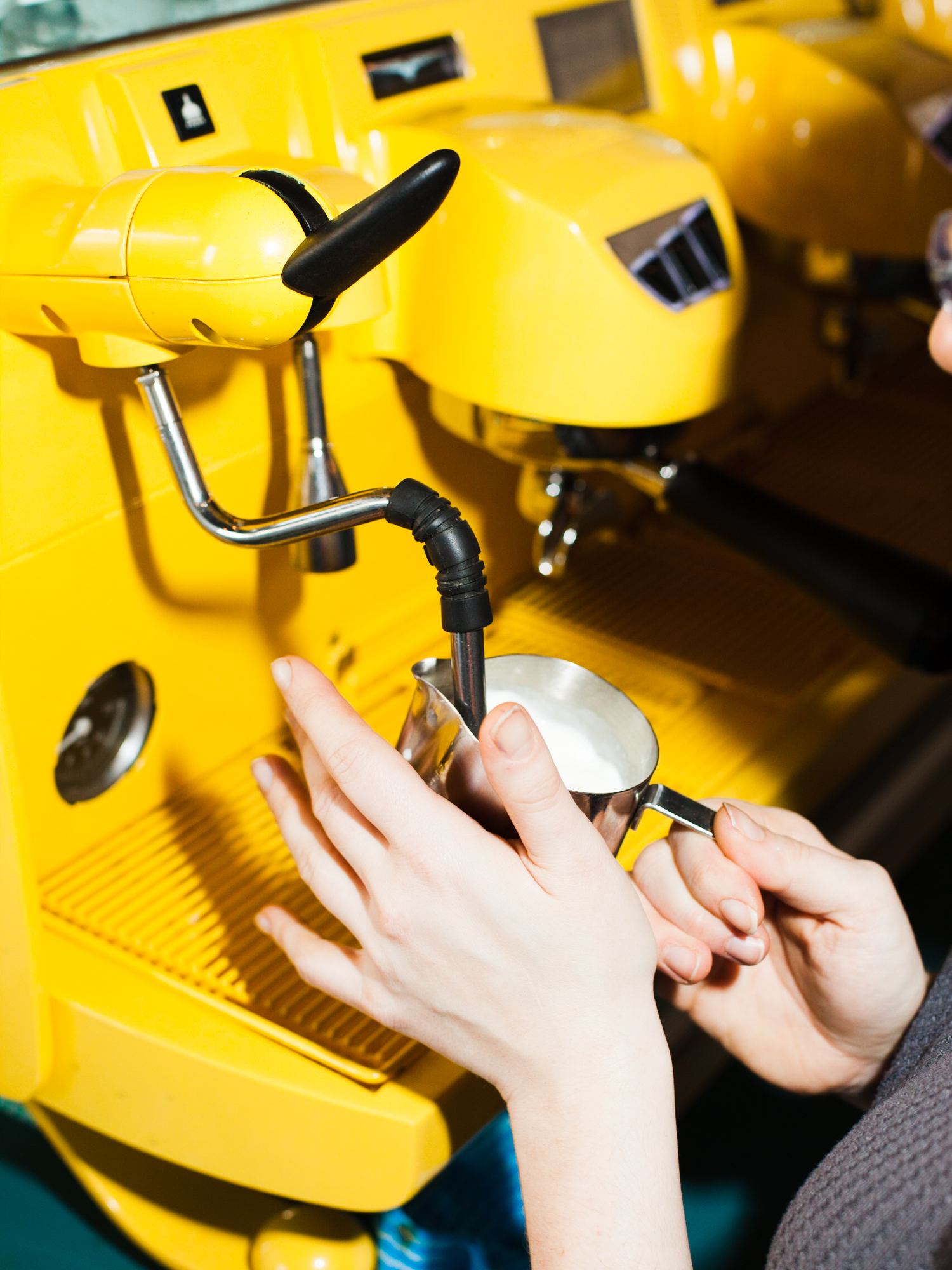
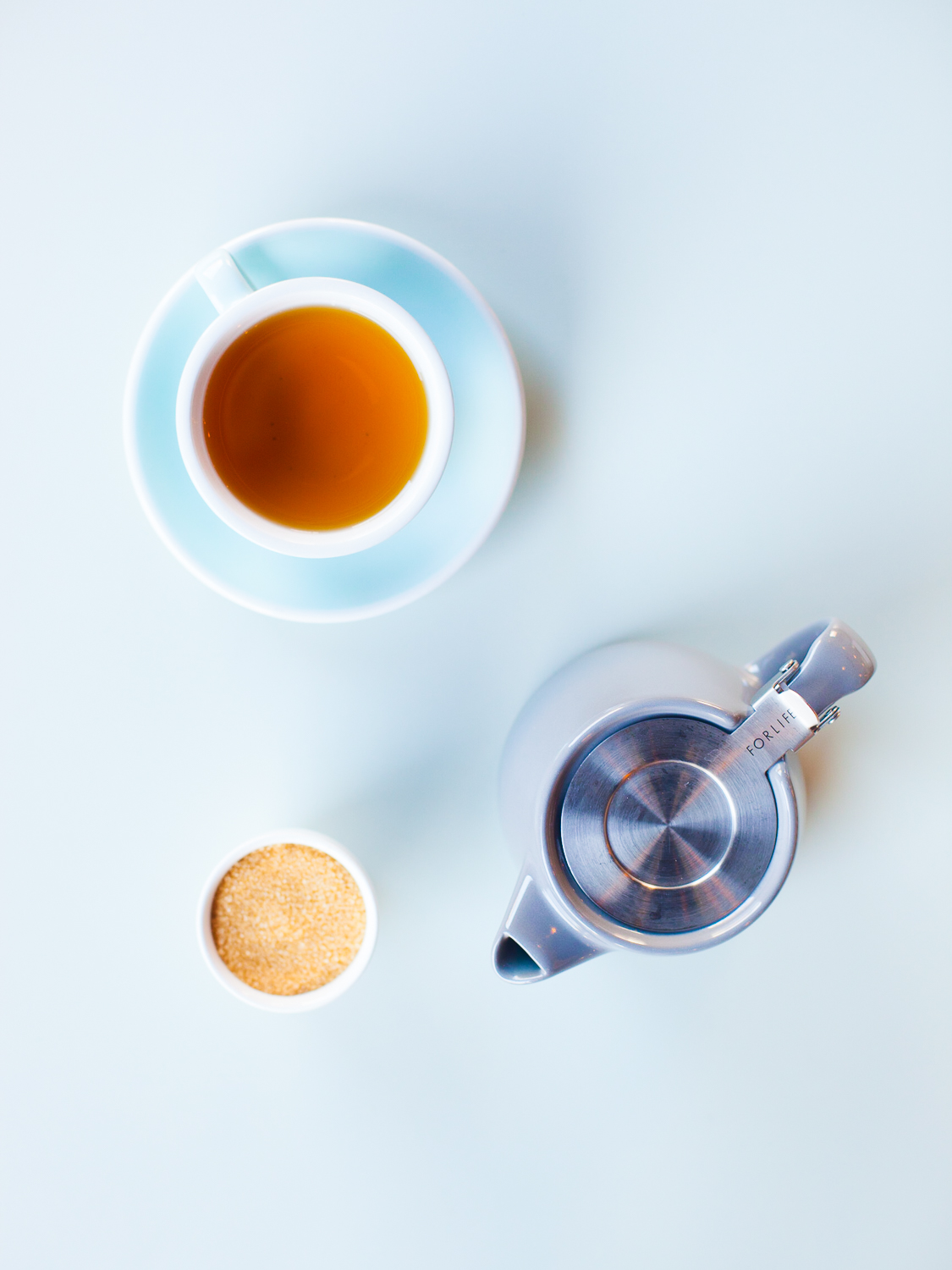
I met Holly in a quiet Library Bar over a pint to talk about career paths, cooking and having the craic in the kitchen. To start, we are distracted. Well, Holly is. There’s a couple on a date, and they have started enthusiastically shifting. I can’t see but they are directly in her line of vision, “Ugh. Children are still awake”. Holly is frank, and funny. In fact the interview recording is probably about one-third me laughing. Holly explains how a teenage interest in Japanese food fuelled her journey to professional kitchens: she experimented in her home kitchen with Japanese cookbooks from the Book Centre and ingredients her parents would buy for her. Food got her hooked: after school she joined the Culinary Arts programme in DIT (now Technical University Dublin).
Everyone on the course came from different food backgrounds. A practical exercise in first year got students to identify and locate food items around the city.
”I was with Cúán Greene (now at Bastible),” she remembers. “He did his work placement in Marcus Wareing, and I didn’t know the fuck who Marcus Wareing was. He was like, ‘He has two Michelin stars’. I didn’t know what a Michelin star was. But then when we went to the Asian markets on Parnell Street, I was streets ahead of everyone else – ‘this is a kumquat, or this is whatever’.” Her push for high-end was there from the start.
“In DIT if the lecturers saw potential in you, they pushed you to do fine dining. And to be honest I agree.” But it’s not always easy. Her first experience in a top level restaurant was a disaster. “That’s when the bubble well and truly burst. That was a horrendous experience. It’s all fine now, but it was bad.”
She doesn’t counter the stereotype of professional kitchens as volatile environments. She mentions one restaurant where she was constantly berated for unsatisfactory work. “I only cried once, when I was on my own in the kitchen,” she says. In another she didn’t eat for 48 hours. I put it to her, she must have known she was good at it, to keep going, to persevere? “You don’t,” she admits. “You keep going because people in college are telling you push through, it’ll pay off. It was one of the darker periods in my life for sure. But it definitely did pay off.”
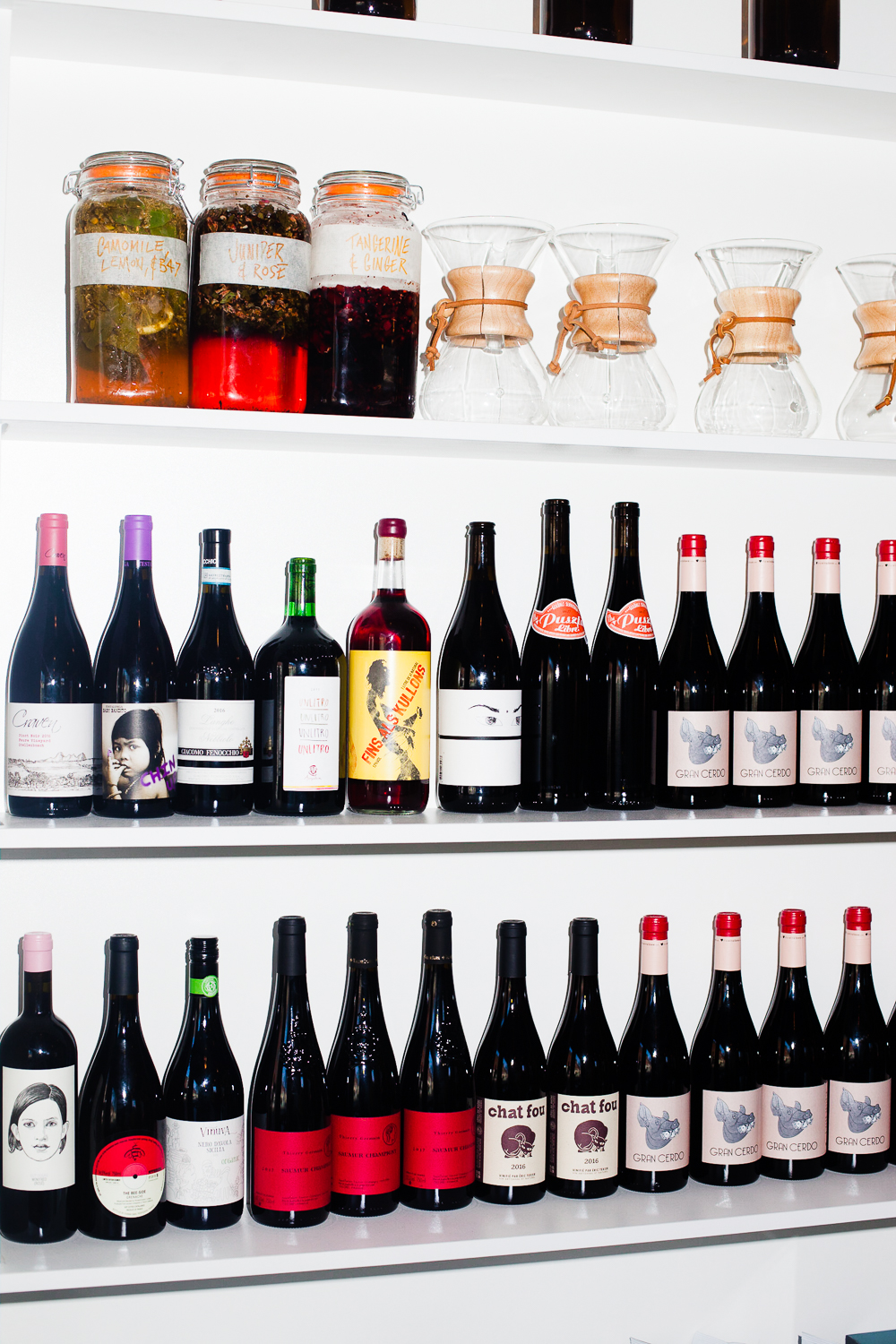
Was the harshness of kitchens common?
“It was really common when I was training. I was surrounded with chefs so it was normalised, which is terrible, but it’s kind of a support as well.” What pushes people through the shit parts of a chef career path are times when they get to explore what made them love food in the first place. In her second year Holly heard that Japanese legends Yamamori were opening Izakaya. Her teenage love for gyoza found expression: she got a job in the kitchen on her days off. “I couldn’t believe my luck. My entire job was just to make dumplings.”
Her college placement in Stockholm in 3 Michelin Star restaurant Frantzen was also transformative. “Frantzen was the opposite of a bubble being burst. My faith was restored completely in hospitality. If I hadn’t done that, I don’t know what I’d be doing now. It was fine dining, people paid hundreds of euros to eat there, yet we were messing all the time.”
In the end, it was a stint after college in Dublin’s Restaurant Forty One that gave Holly clarity on what she wanted – or didn’t want – from cooking. She is full of praise for Graham Neville, who was then her head chef. “He is one of the best chefs in Ireland. He taught me that soon as you start cooking for other chefs and not customers, you might as well just close. You want to make people feel welcome.”
Nonetheless, the writing was on the wall, “I’d been in Restaurant Forty One for about two years, I was looking into the dining room and I didn’t really relate to anyone sitting there. It was all suits. They were just there to spend money. I wanted to work in a restaurants with people I can relate to, with customers I can relate to.”
There’s something direct about Holly, in a punkish kind of way, so I wasn’t surprised to learn she played bass in a punk band (Too Tame, they’re on Bandcamp). The formality of Restaurant Forty One just didn’t match her buzz. “I wanted to play music and make ramen. I couldn’t get any of my friends to go there.”
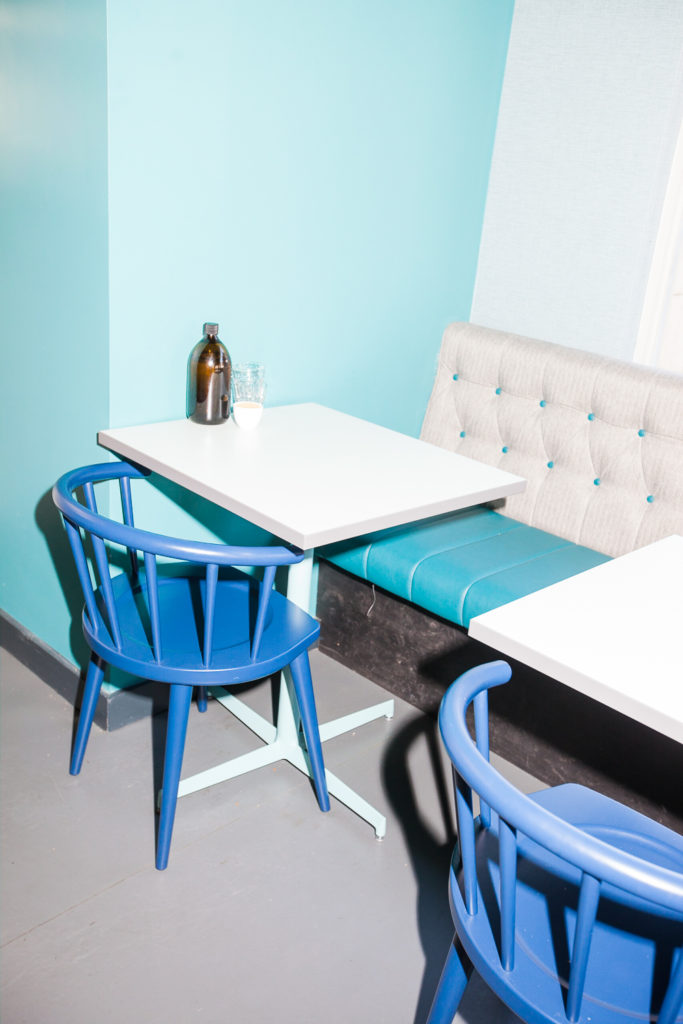
She found the home she was looking for in the much more casual café kitchen of 3fE. “Graham thought I was throwing my career away,” she says. She learned the ropes of logistics and sustainability in Grand Canal Street. The project to open Gertrude was ambitious and long-delayed, but the concept stayed with her.
“The only brief Colin gave was that they wanted to be as accessible as possible. I knew I would love to own or go to a place like this.”
I asked her about Irish food and whether she feels any sense of culinary patriotism. She criticises the banality of the whole conversation. “I’m Irish so it’s Irish food. I’m so bored and tired of talking about Irish food and producers and sustainability. Is that the only thing you have to say about your food? That’s like an entry level thing to talk about. I want to talk about how I was on Munchies and they made this deep-fried pizza, or I was in Japan and had this pork sandwich in a newsagents, and I want to cook that.”
It’s a deliberately flippant comment; they work with the best Irish ingredients and make a point of not being a dick to producers or the planet. But it’s clear Gertrude’s menu is hers rather than tying in with other agendas, “At the end of the day, not to be a wanker about it, the food I make is based on my experience and my identity as a chef and a human and travelling and what I eat and my lifestyle.”
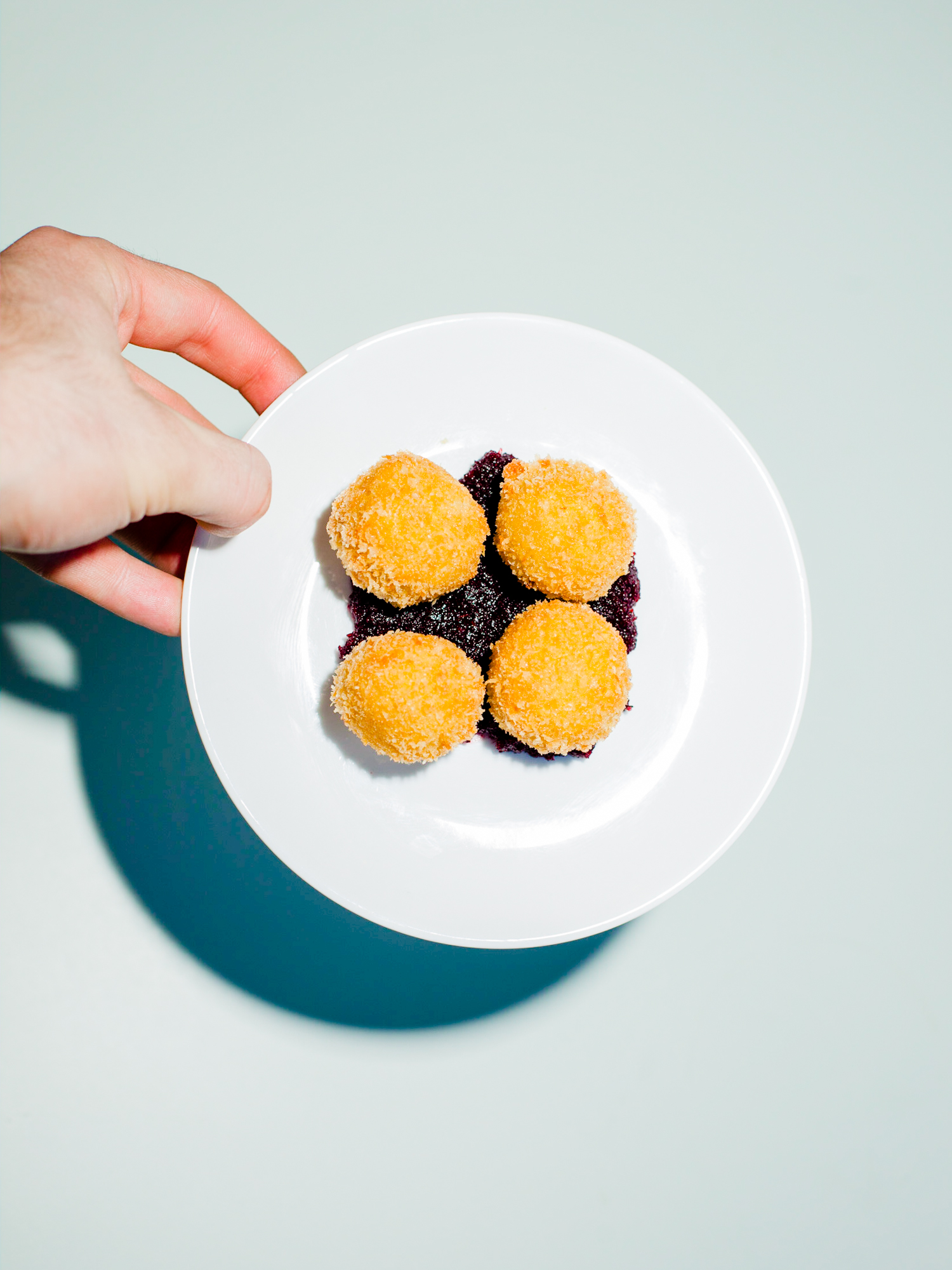
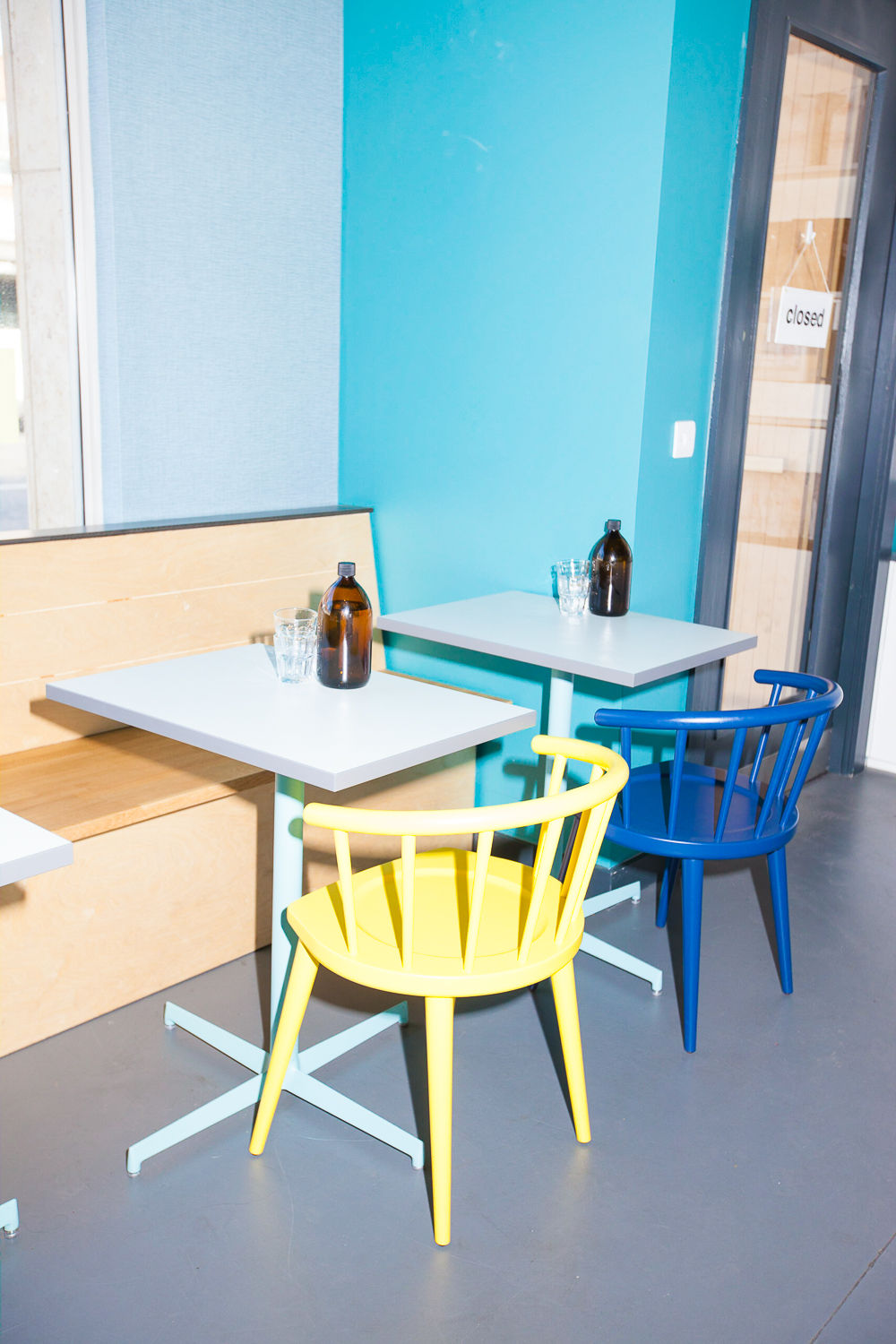
This individuality shines through in the menu. She points out that menus should be identifiable as created by individuals and gives Galway’s Jess Murphy as an example. “If you handed me the menu from Kai, you’d know it was her.”
Holly has no time for elitism, “I hate that. That’s why I love Jess, one minute she’s talking about turnips from down the road, the next minute she’s smoking a fag in PJ’s eating a chippy. She’s so real. That is something we don’t see enough of in Irish food. If I was organised, I’d be going to the farmers’ market all the time, and I do love that. But at the end of the day, we’re all tired.”
‘We’re all tired’ is the kitchen mantra of Holly and her sous chef Niamh Durkin. It’s a kind of ‘right lads, none of us wants to be here but let’s get on with things’ approach.
“Me and Niamh are like soulmates. I’ve never worked with anyone that I’ve been so compatible with. She’s also really critical and not afraid to say this isn’t good enough. She’ll never bullshit you.”
I end my consultation of the wisdom of Holly by asking her what she thinks of Dublin these days. “I think Dublin is absolutely brilliant. A lot of people have glorified cities like Copenhagen for food. I think it’s the most overrated food destination on the planet. Dublin has any number of really high quality excellent restaurants where you can go and spend thirty quid and eat well: Etto, Uno Mas, Bastible, Clanbrassil House, it has this fancy coffee shop, it’s the best thing ever. We need to stop looking so much at what London and New York is doing. You know how they say we’re five years behind London and 10 years behind New York. We need to break away from that.”

